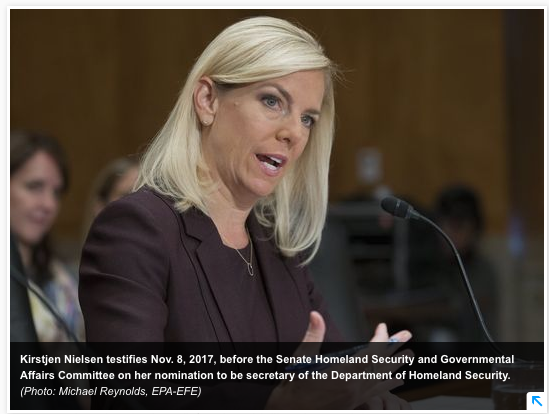Salvadoran immigrants living in Delaware under Temporary Protected Status face deportation in 18 months after the Trump Administration announced Monday that it will remove El Salvador from a federal list of countries to which citizens cannot safely return.
The Department of Homeland Security similarly ended TPS for people from Haiti and Nicaragua in 2017. For hundreds of current Delaware residents, the decisions likely mean a forthcoming deportation order during the next two years.
Yet, many who have lived for decades in Delaware, establishing businesses and buying homes, may choose instead to stay here undocumented rather than return to the extreme violence in their homeland, said Bryant Garcia, the immigration program coordinator at La Esperanza in Georgetown.
“You have the potential for people who had a legal status, who were paying taxes, to now move into the shadows,” Garcia said. “I understand that this was supposed to be temporary but the fact is, the U.S. government has sat on this for years, and years, to the point that people have started anew here.”
While the Department of Homeland Security does not release “state-by-state breakdowns” for TPS recipients, Garcia estimated that the number is close to 1,000 in Delaware.
El Salvador, a diminutive country on a global scale, has had by far the most TPS recipients living in the United States. Salvadorans were given the status in 2001 following two devastating earthquakes, which killed nearly 1,000 people, and destroyed more than 100,000 homes.
Homeland Security Secretary Kirstjen M. Nielsen on Monday said disaster-related conditions from the earthquake no longer exist and therefore her agency is legally bound to end the program.
“Following the 2001 earthquake, El Salvador received a significant amount of international aid to assist in its recovery efforts, including millions of dollars dedicated to emergency and long-term assistance. Many reconstruction projects have now been completed,” Nielsen said in a statement.
Yet previous administrations under Presidents George W. Bush and Barack Obama had noted that violence from drug traffickers was a factor in their decisions to extend the program.
In February, the State Department issued a warning to U.S. travelers in El Salvador, noting the country “has one of the highest homicide levels in the world and crimes such as extortion, assault and robbery are common.”
Garcia said Salvadorans who had lived in the United States often are a “bigger target” for those crimes when returning to their home country.
“We do know of situations where people who have only been in the states for a year or two … who have then been killed” after returning home, Garcia said.
When people from Haiti lost the Temporary Protected Status in November some decided to move to Canada rather than their home country, the poorest in the Western Hemisphere. The migration left chicken farms in Delaware and Maryland’s Eastern Shore without needed employees, said Bill Satterfield, executive director of Delmarva Poultry Industry.
“One of the biggest challenges facing the Delmarva chicken industry is the recruitment and retention of qualified employees,” Satterfield said in a statement. “The looming July 2019 expiration of Temporary Protected Status for some Haitian chicken company workers likely will result in more departures in the coming months.”
Contact Karl Baker at kbaker@delawareonline.com or (302) 324-2329. Follow him on Twitter @kbaker6.
